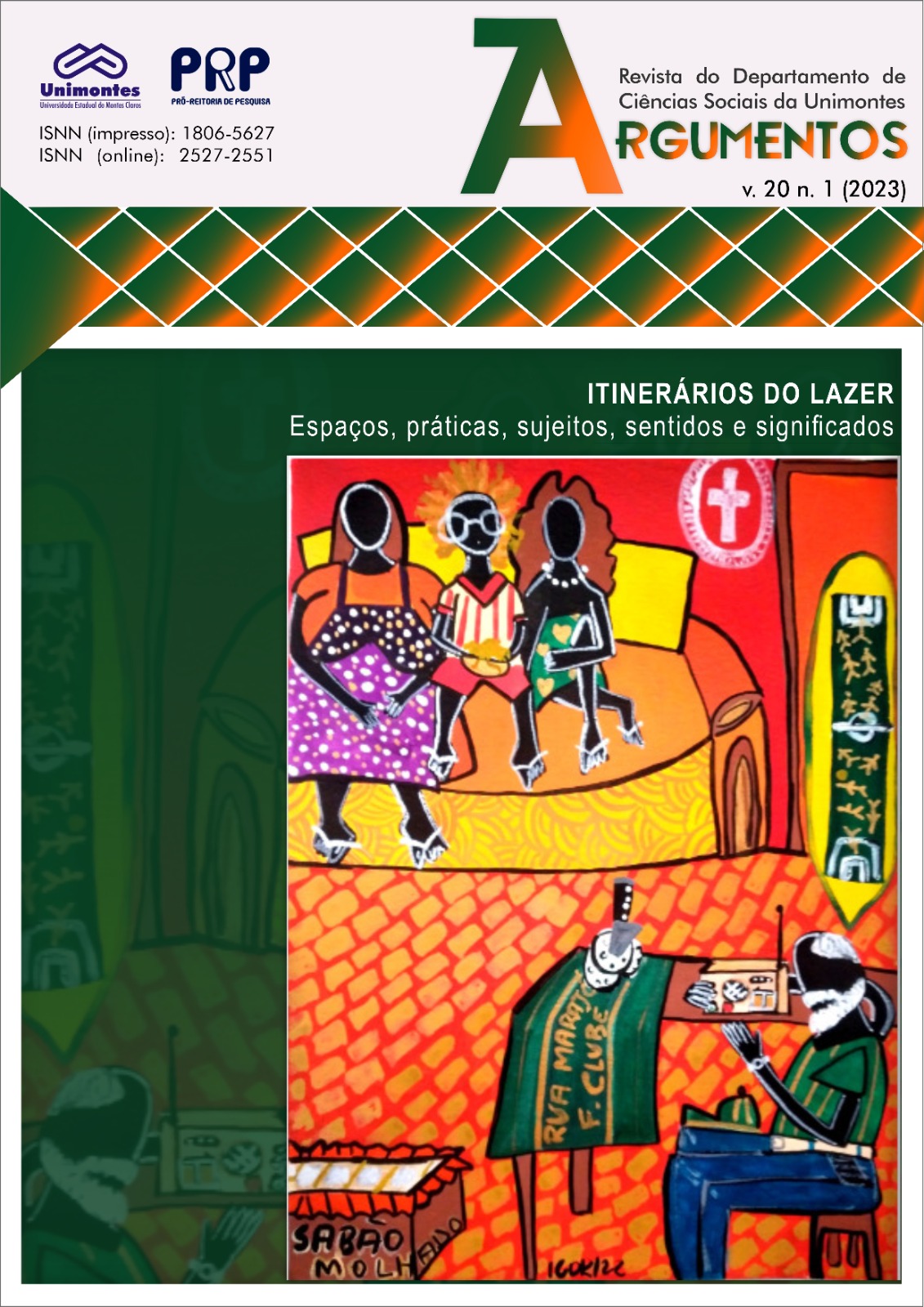Tourism as a transformation and leisure tool
DOI:
10.46551/issn.2527-2551v20n1p.82-106Keywords:
Intercultural competence; Intercultural communication; Education; Leisure; Tourism.Abstract
The present study observes the relevance of intercultural processes present in the touristic activity and tourism's multidisciplinary role as a source of leisure, culture, and welfare. The aim of this work is to demonstrate tourism's educational role and the relevance of touristic activity as a transformative leisure tool that can contribute to the development of intercultural competences. This study not only assesses the development of competences in specific tourist groups but also the positive and negative impacts to the populations involved in the touristic activity. Through applying education indicators to the field of tourism, where the impacts of touristic activities with educational purposes on the development of competences in those who directly or indirectly participate of said activities have been analysed, the present study sheds light on a formative and mobilizing potential of the leisure activities in general. It is a fundamental intensive qualitative research, with quantitative data complementation and mixed technique of data collection, given the age and sociodemographic diversities of the target group. The study's results confirm the relevance of the touristic activities' impacts on the most diverse sections of society and on a global scale.
Downloads
References
ALBU, Cristina. Intercultural communication in tourism. Iasi: Cross-Cultural Journal. V.17, p.7-14, 2015.
APPADURAI, Arjun. Disjuncture and Difference in the Global Cultural Economy. London: Theory, Culture & Society. V.7, p.295-310, 1990. DOI: 10.1177/026327690007002017.
BARRETTO, Margarida. O imprescindível aporte das ciências sociais para o planejamento e a compreensão do turismo. Horizontes Antropológicos.V.9, n.20, p.15-29, 2003. https://doi.org/10.1590/S0104-71832003000200002
BRYMAN, Alan. Social Research Methods (4a. ed). Oxford: Oxford University Press, 2012.
CÔRTES, Lucília. O papel educacional do turismo no desenvolvimento de competência (inter)cultural de estudantes de 2° e 3° ciclos no Brasil. Lisboa; 2022. Dissertação (Mestrado em Turismo e Comunicação) – Universidade de Lisboa e Escola Superior de Hotelaria e Turismo do Estoril.
CRESWELL, John. Mapping the Field of Mixed Methods Research. Sage: Journal of Mixed Methods Research. V.3, n.2, p. 95-108, April-2009. https://doi.org/10.1177/1558689808330883
DEARDORFF, Darla. Identification and assessment of intercultural competence as a student outcome of internationalization. Journal of studies in International Education. V.10, n.3, p. 241-266, 2006. https://doi.org/10.1177/1028315306287002.
______. Implementing Intercultural Competence Assessment. In: Darla K. Deardorff (ed.). Thousand. Oaks: Intercultural Competence, 2009.
DUMAZEDIER, Joffre. Lazer e cultura popular. São Paulo: Perspectiva, 1974, 336 p.
FREIRE-MEDEIROS, Bianca. A Favela que se vê e que se vende: Reflexões polêmicas em torno de um destino turístico. São Paulo: Revista Brasileira de Ciências Sociais, v. 22, n.65, p. 61-72, 2007.
FREIRE, Paulo. Pedagogia da Autonomia. São Paulo: Paz e Terra. 2010, 148 p.
KRIPPENDORF, Jost. School for a more human tourism. In: Butterworth and Heinemann (eds). The holiday makers: understanding the impact of leisure and travel. Oxford: Butterworth and Heineman, 2002.
LAGE, Beatriz; MILONE, Paulo. Cultura, lazer e turismo. São Paulo: Revista Turismo Em Análise, 6(2), p.7-25, 1995. https://doi.org/10.11606/issn.1984-4867.v6i2p7-25
LIBÂNEO, José Carlos. O dualismo perverso da escola pública brasileira: escola do conhecimento para os ricos, escola do acolhimento social para os pobres. São Paulo: Educação e Pesquisa. V. 38 n.1, p.13-28, 2012. https://doi.org/10.1590/S1517-97022011005000001
MACCANNELL, Dean. (1973). Staged Authenticity: Arrangements of Social Space in Tourist Settings. Chicago: American Journal of Sociology. V. 79, no. 3, p. 589-603. https://doi.org/10.1086/225585
PONTUSCHKA, Nídia. O Conceito de estudo do meio transforma-se...Em tempos diferentes, em escolas diferentes, com professores diferentes. In: José William Vesentini (Org.). O Ensino de Geografia no Século XXI (3ª. ed.). São Paulo: Papirus Editora, p. 249-287, 2007.
PRONOVOST, Gilles. Introdução à sociologia do lazer. São Paulo: Senac, 2011, 203 p.
RUDMIN, Floyd. Constructs, measurements and models of acculturation and acculturative stress. Amsterdam: International Journal of Intercultural Relations. V.33, p.106-123, 2009.
SNYDERS, Georges. A alegria na escola. São Paulo: Manole, 1988, 284 p.
TRIBE, J. & AIREY, D. Development in Tourism Research. London: Routledge. 2007. 268 p.
https://doi.org/10.4324/9780080551685
UNESCO – United Nations Educational, Scientific and Cultural Organization (2006). Guidelines on Intercultural Education. Paris: UNESCO.
https://unesdoc.unesco.org/ark:/48223/pf0000147878
UNESCO – United Nations Educational, Scientific and Cultural Organization (2015). Educação para a cidadania global - A abordagem da UNESCO. http://www.unesco.org/new/fileadmin/MULTIMEDIA/FIELD/Brasilia/pdf/brz_ed_global_citizenchip_brochure_pt_2015.pdf







.png)










.png)





